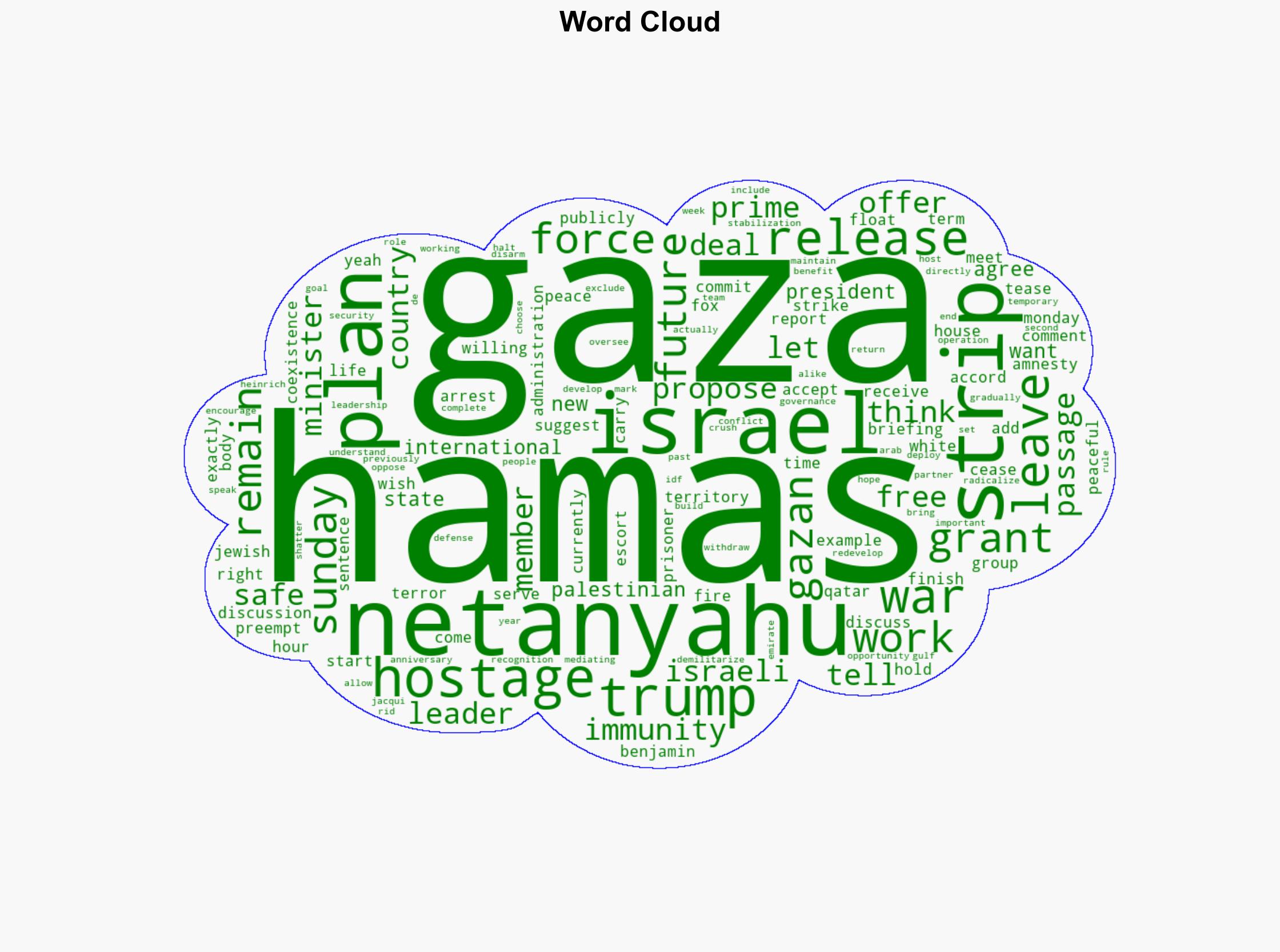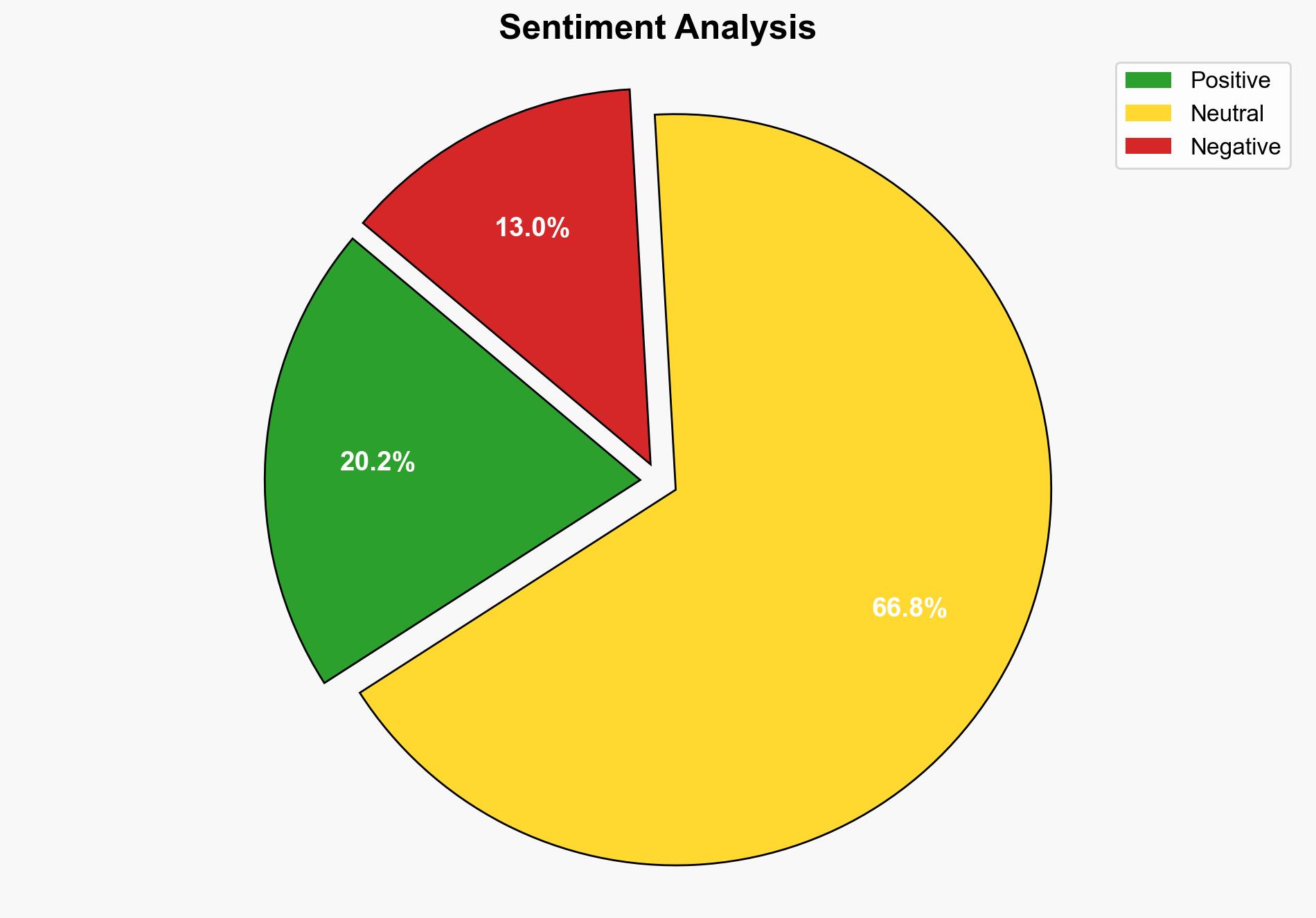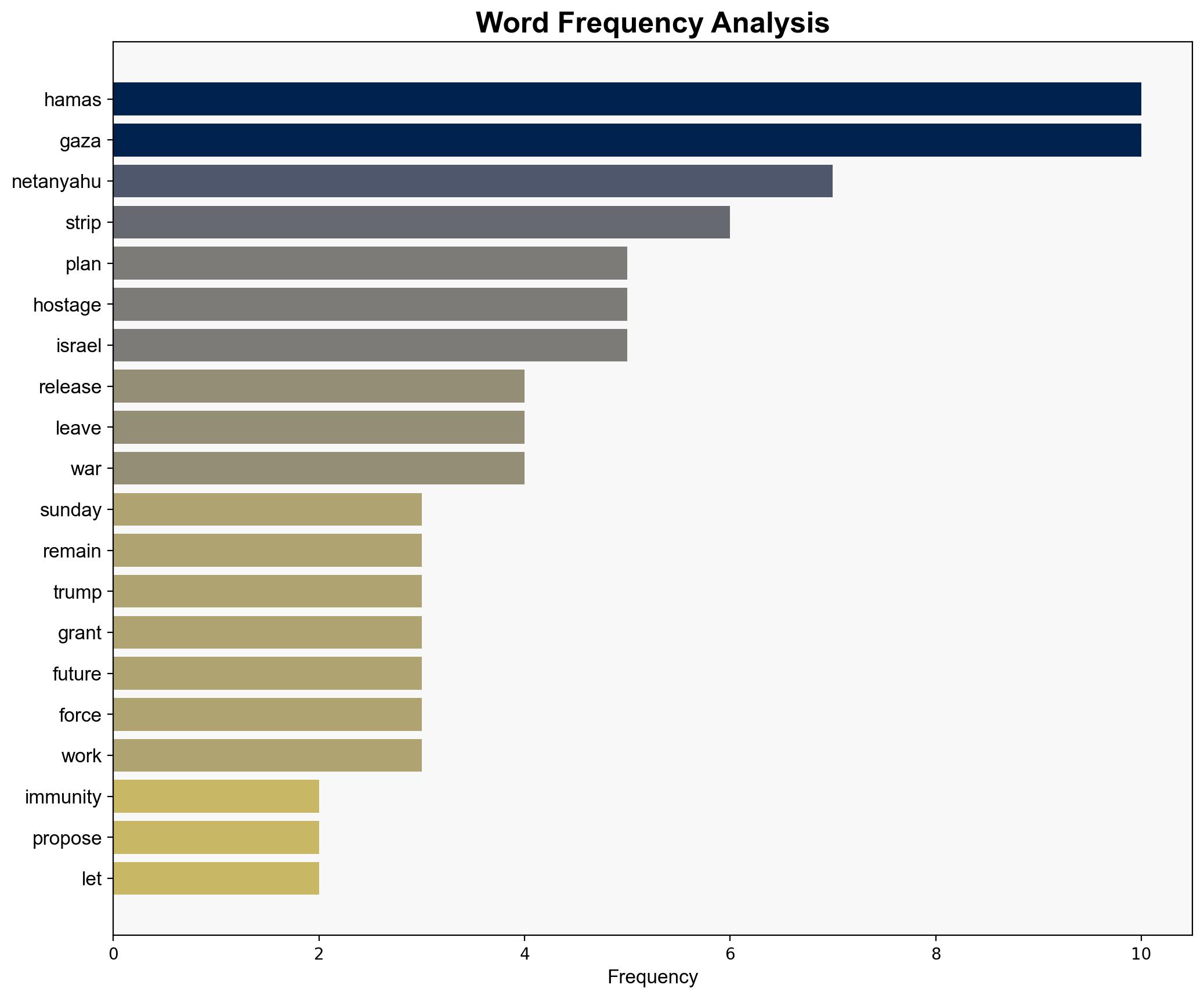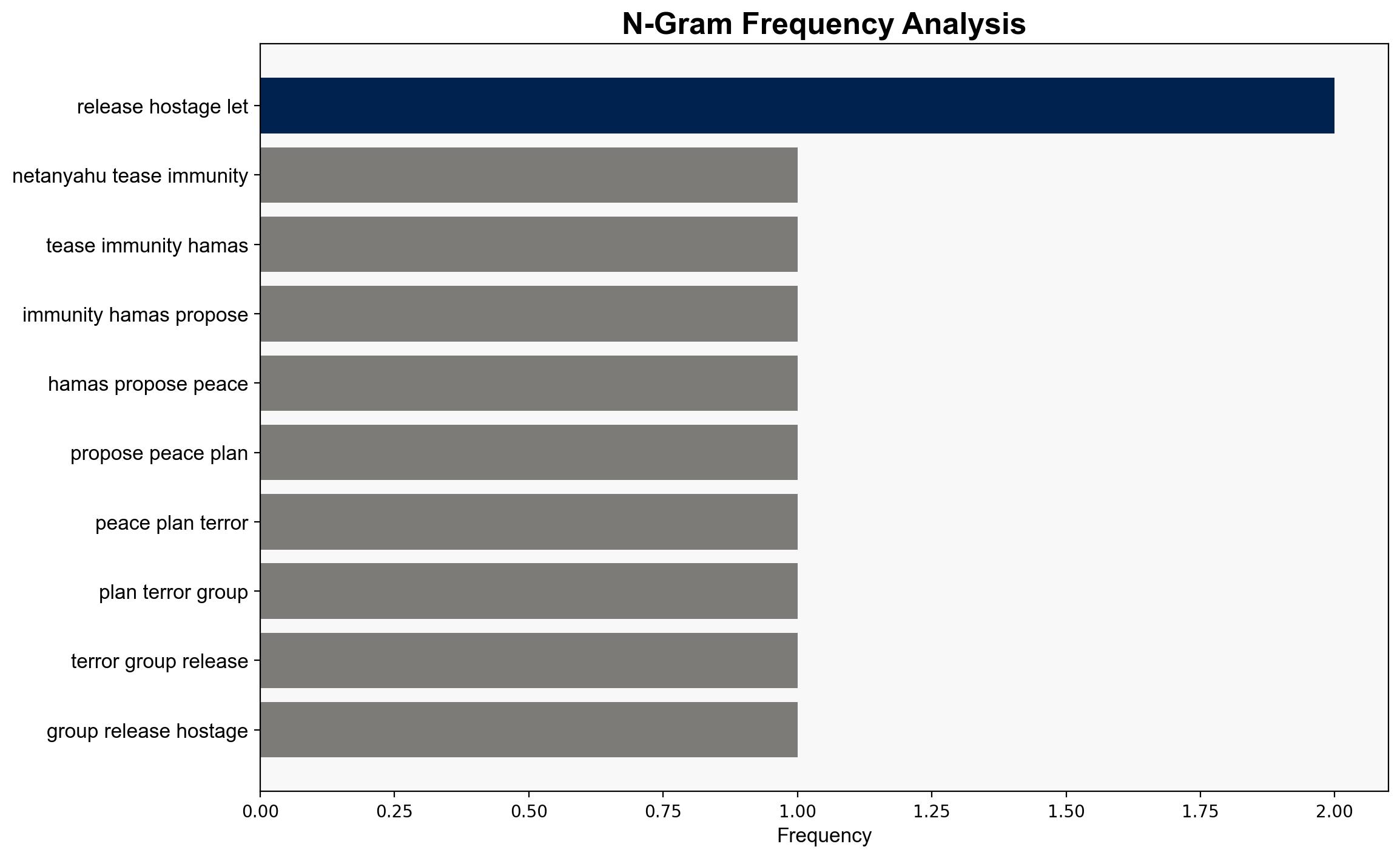Netanyahu teases immunity for Hamas in proposed peace plan if terror group releases hostages Well let them out – New York Post
Published on: 2025-09-29
Intelligence Report: Netanyahu teases immunity for Hamas in proposed peace plan if terror group releases hostages – New York Post
1. BLUF (Bottom Line Up Front)
The strategic judgment is that the proposal by Netanyahu to offer immunity to Hamas in exchange for the release of hostages represents a significant shift in Israeli policy, potentially aimed at de-escalating the conflict in Gaza. The most supported hypothesis is that this proposal is a tactical maneuver to gain international support and pressure Hamas while testing the group’s willingness to negotiate. Confidence level: Moderate. Recommended action: Monitor the response from Hamas and international stakeholders, and prepare for potential shifts in regional alliances.
2. Competing Hypotheses
1. **Hypothesis A**: Netanyahu’s proposal is a genuine attempt to de-escalate the conflict by offering Hamas a face-saving exit, thereby reducing hostilities and securing the release of hostages.
– **Supporting Evidence**: The proposal includes immunity and safe passage, which could appeal to Hamas leaders seeking to avoid further conflict.
– **Contradictory Evidence**: Netanyahu’s historical stance has been to completely dismantle Hamas, suggesting this could be a strategic ploy rather than a genuine offer.
2. **Hypothesis B**: The proposal is a strategic maneuver to isolate Hamas diplomatically and increase pressure on the group by showcasing Israel’s willingness to negotiate, thus gaining international support.
– **Supporting Evidence**: The involvement of international partners and the timing of the proposal with a meeting at the White House suggest a coordinated diplomatic effort.
– **Contradictory Evidence**: The proposal’s reliance on Hamas’s cooperation, which may be unlikely given their past actions and ideological rigidity.
3. Key Assumptions and Red Flags
– **Assumptions**: It is assumed that Hamas is willing to negotiate and that international partners can influence the group’s decisions. It is also assumed that Netanyahu’s proposal is backed by a broader strategic plan.
– **Red Flags**: Netanyahu’s past opposition to similar proposals raises questions about the sincerity of this offer. The lack of explicit support from key regional players could undermine the proposal’s viability.
– **Blind Spots**: The internal dynamics within Hamas and potential opposition from hardliners are not addressed, which could derail negotiations.
4. Implications and Strategic Risks
– **Implications**: If successful, the proposal could lead to a temporary reduction in violence and a shift in regional dynamics, potentially opening pathways for longer-term peace initiatives.
– **Strategic Risks**: Failure of the proposal could lead to increased hostilities, further entrenchment of positions, and loss of credibility for Netanyahu. There is also a risk of alienating key allies if the proposal is perceived as insincere.
– **Cascading Threats**: A breakdown in negotiations could escalate into broader regional conflict, involving other state and non-state actors.
5. Recommendations and Outlook
- Engage with international partners to build a coalition supporting the proposal, ensuring broad-based diplomatic backing.
- Prepare contingency plans for potential escalation, including military, economic, and cyber responses.
- Scenario-based projections:
– **Best Case**: Successful negotiation leads to hostage release and reduced conflict.
– **Worst Case**: Proposal fails, leading to increased violence and regional instability.
– **Most Likely**: Partial success with some hostages released, but ongoing tensions remain.
6. Key Individuals and Entities
– Benjamin Netanyahu
– Hamas leadership
– Donald Trump
– International partners involved in mediation
7. Thematic Tags
national security threats, counter-terrorism, regional focus, diplomatic strategy





